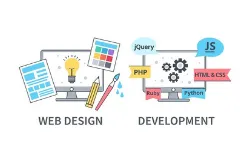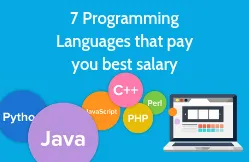What are the 7 HR basics?
The continual evolution of Human Resources (HR) is something that deserves special attention - to keep pace with trends and improvements as they happen. Nevertheless, keeping the core tenets of HR in view should be of paramount importance as among the whirlpool of new technologies and operating models.
These key principles, which are always called the "seven HR fundamentals", represent the main building block of the HR management practice.
Here are the 7 HR basics
Recruitment and Selection:
It is the people within every successful company that hold the company together and make it one to be appreciated by all. Identifying, job advertising, and onboarding the most qualified candidates through the recruitment process are HR’s ways to search for elite employees. This basic function on a day-to-day basis encompasses job description writing and screening of job applicants thus the right people are in the right positions, and ultimately organizational performance, productivity, and innovation are enhanced.
Employee Relations:
Supporting the development of positive staff relations is one of the most critical organizational priorities aimed at the creation of a strong working climate. The necessity of human resource professionals in petty dispute solving, grievances compiling, and open communication's new opportunities cannot be overstated. By nurturing a trusting and respectful atmosphere, one can make sure that employees feel valued and would like to stay around for longer. When this takes place, the overall level of engagement among the workers boosts up, leading to higher productivity.
Performance Management:
The right performance management system comprises setting targets, feedback constantly, and a result evaluation compared to set precedent markers. Through balancing employee performance with organizational purpose, HR practitioners can collectively echo the people's sense of achievement and the success of the business. Additionally, performance management promotes ongoing improvement and development as employees become vested and in much more of "win and stay winning" mode.
Training and Development:
It is imperative that employee training and development is prioritized as this is vital in building a skilled and flexible workforce. The human resource managers build and run programs on training that are evaluated adequately to see that the employees develop the necessary skills and knowledge to perform well in their positions. It can be delivered by either web-based courses, informal work, or more streamlined training either at given venues or online. In this way, the innovative spirit is reinforced, employees are motivated and all of this binds the organization together.
Compensation and Benefits:
Also, it is fair and competitive compensation which is the Black and white option of attracting and retaining the job market in the competitiveness today. The role of the HR staff includes developing the compensation structures that help in meeting the economic standards and the organizational targets. Moreover, they can design employee compensation plans that include medical insurance, retirement benefits, and wellness initiatives to create healthy work environments that promote satisfaction and employee engagement.
Legal Compliance:
HR management is all about grappling with the situation filled with the applicability of employment law. HR specialists should keep up with new regulations and inspect the company's internal tools and policies. They should make sure they comply with existing laws and always follow them. Among others, from employment contracts to workplace safety standards, the respect of legal requirements is intended to impose legal obligations for the organization as well as for its employees and would help them to be protected from any suitable liability and dispute.
HR Information Systems (HRIS):
Today, HR departments are equipped with HR platforms of advanced performance to optimize and organize routine HR operations and employees' data. These based systems bring down processes like payroll, benefits management, and employee information, hence, giving an HR a chance to plan strategic initiatives. With the help of data mining, HRIS can provide hard data to assist organization decision-makers get to the problem quickly and make certain that they are provided with truthful and insightful information needed to make informed decisions.
By attending the classes at Apponix Academy, HR can pick up vital skills from the courses focusing on recruitment strategies, employee relations, performance management, and legal compliance. Through practical training with the right curriculum employer-sided, Apponix makes certain that its students attain hands-on knowledge, for example, compensation designing, HRIS implementation, and talent development. Apponix Academy aims at delivering experiential learning with the help of our industry experts capacity building in the field of HR basics is the way forward to eventually lead individuals toward holistic success in the dynamic field of human resources.







